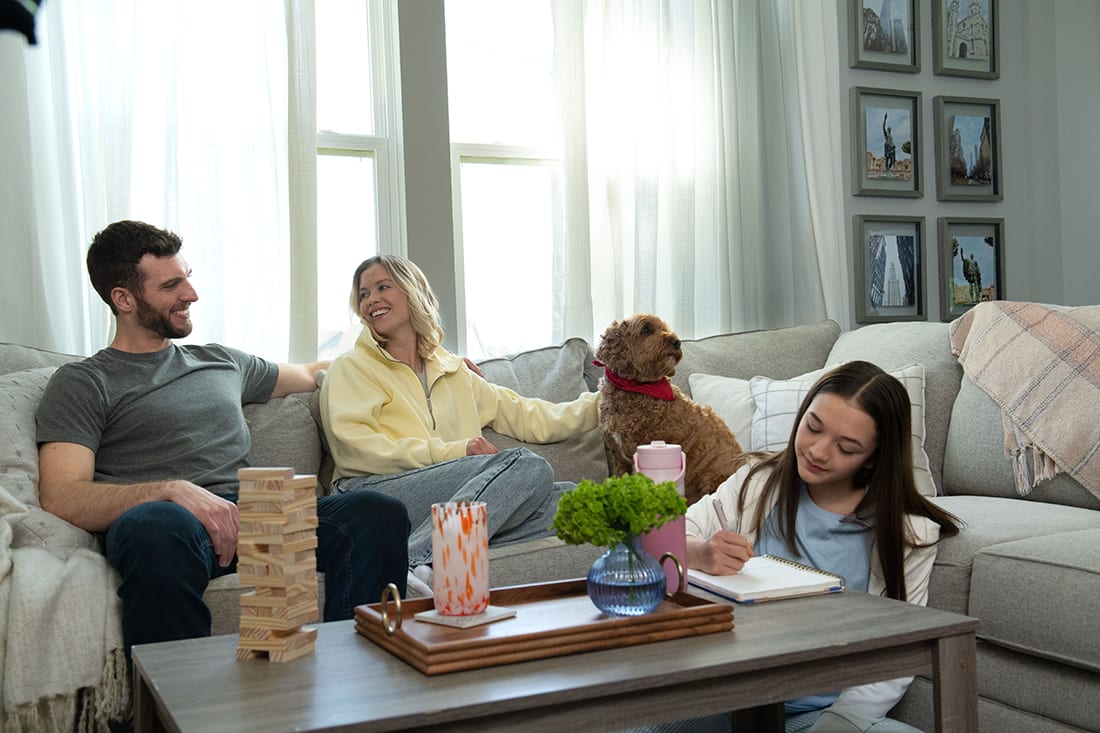Bryant HVAC Filters

The Importance of HVAC Filters
Changing HVAC filters is one of the simplest steps you can take to maintain your home. This activity can significantly impact your home's heating and air conditioning, improve indoor air quality, and help save you money on energy bills and HVAC system service. A dirty filter restricts airflow, reduces efficiency, and may even impact your HVAC system’s reliability.
There are also numerous options for furnace filters. Common mechanical filters include 1-inch filters, 4-inch filters, fiberglass filters, and pleated filters. More advanced options, like whole-home air purifiers and electronic air cleaners, have their own maintenance schedules but often include a filter that needs regular replacement.
To maintain the health of your home comfort system and improve air quality, take a few minutes each month to inspect your system's filter. If it’s dirty, replace it.

HOW OFTEN SHOULD I CHANGE MY HVAC FILTER?
How often you should change your HVAC filter depends on the type of filter.
“If it’s just a one-inch disposable fiberglass filter, it should be replaced every 30 days,” Mark Lea, co-owner of Lea Heating & Air Conditioning in East Dundee, IL. “A one-inch pleated air filter should be changed every 60 to 90 days, while four- or five-inch media filters—like the Bryant EZ Flex filter—should be replaced about twice per year.”
HVAC filters are designed to both improve indoor air quality and protect your HVAC system from build-up of dirt and debris. When you fail to replace your HVAC air filter, commonly referred to as a furnace filter or air conditioner filter, airborne pollutants like animal dander, pollen, and dust, can collect on the air filter’s surface. Pollutant buildup can curb airflow, which makes the air handler work harder. This affects the system’s energy efficiency and can even shorten the lifespan of your HVAC system as well.
Setting a schedule for replacing your HVAC filters is important, but it’s also smart to look out for the signs that your filter needs to be changed:
- The filter appears to be gray colored and/or you can see dirty buildup on the filter’s surface.
- You notice a higher level of dust in your home than you typically see, or quicker build-up of dust after cleaning your home.
- Your home takes longer than usual to heat or cool due to longer heating and cooling cycles.
HOW TO CHANGE AN HVAC FILTER
Follow the below steps to replace your HVAC filter. Make sure to have a compatible replacement filter available before getting started.
- Find the filter. Your HVAC filter is typically found in the blower compartment of the furnace or sits in the ductwork leading into the furnace.
- Turn off your HVAC system. You can turn the system off using the thermostat’s settings, or using the power cut-off switch typically located on the exterior of the furnace cabinet (it looks like a light switch).
- Take off the blower cabinet door or duct-mounted access panel to access the current filter.
- Before removing the filter, note the airflow direction arrows, usually printed on the filter’s side. Air should flow from the ductwork into the furnace. Additionally, if you are unsure what size filter to use as a replacement, most manufacturers print the filter dimensions on the side of the filter.
- Remove the filter carefully – it may have significant dust and dirt buildup.
- Install the new filter ensuring the airflow arrows are pointing in the same direction as the filter you are replacing.
- Replace the blower cabinet cover or access panel.
- Restore power to the system.
Once your system is running, ensure it seems to be operating as usual, and that it is heating or cooling your home as it should.

CONTACT YOUR LOCAL BRYANT DEALER
While filter replacement can seem simple, sometimes calling a professional for simple maintenance can be comforting. Most Bryant dealers offer maintenance contracts or clean-and-check appointments. They can examine your filter during their appointment and make filter replacement recommendations.
If you regularly replace your air filter and are concerned your system is not keeping your home as comfortable as expected, if you notice higher energy bills, or if your system to runs longer or more frequently than normal, it might be time to contact your local Bryant dealer to provide an estimate of your home’s HVAC system.


